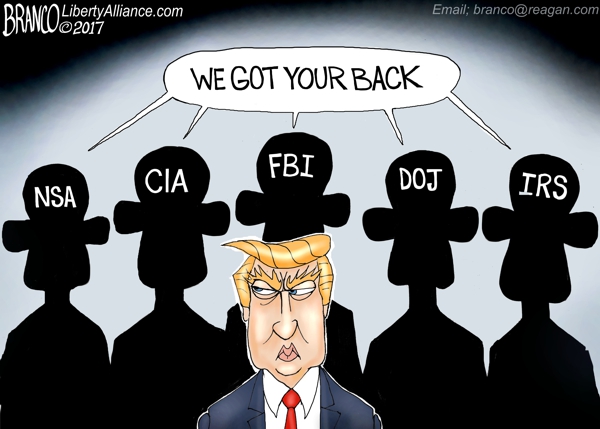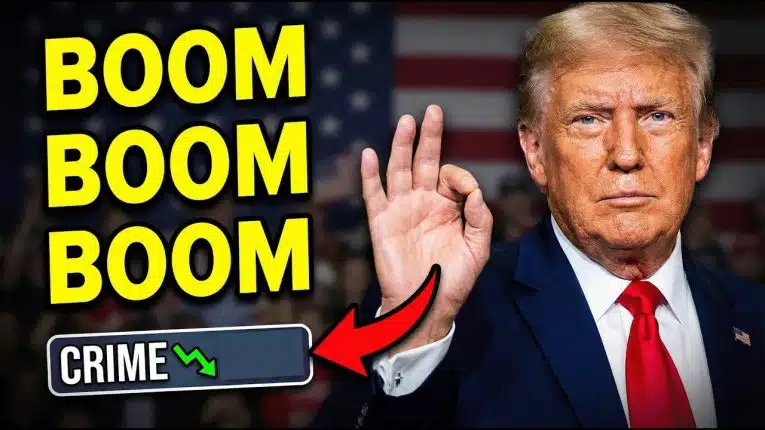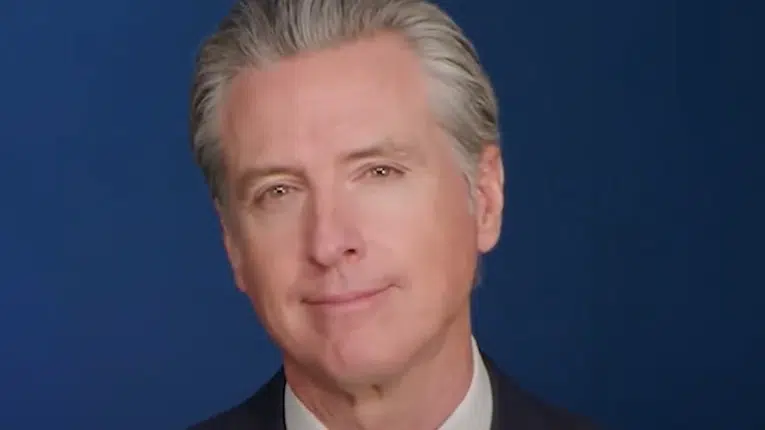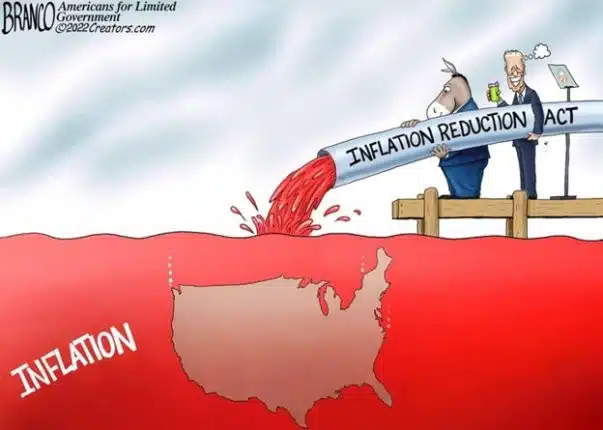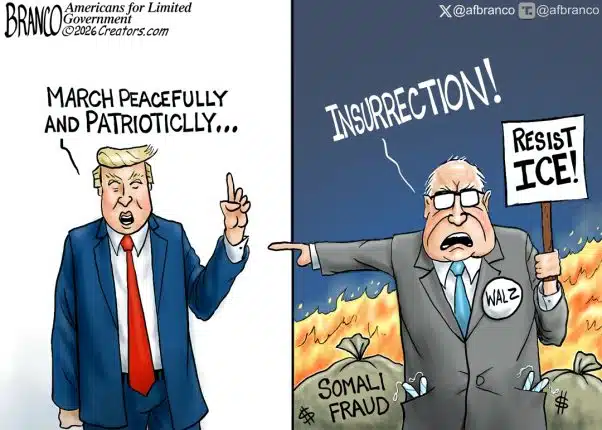By now, the American people have had the opportunity to take a look at Attorney General William Barr’s summary of Special Counsel Robert Mueller’s report concluding his investigation. We all know the toplines. After an exhaustive three-year inquiry by the Justice Department, which Mueller took over in May 2017, there was no conspiracy between Russia and President Donald Trump and his campaign to interfere in the 2016 election.
On potential obstruction of justice, Mueller declined to issue a recommendation on prosecution, instead punting the question to Barr and Deputy Attorney General Rod Rosenstein, who found “no actions that, in our judgment, constitute obstructive conduct, had a nexus to a pending or contemplated proceeding, and were done with corrupt intent, each of which, under the Department’s principles of federal prosecution guiding charging decisions, would need to be proven beyond a reasonable doubt to establish an obstruction-of justice offense…”
Now, Barr is promising that as much as what can be released in the full report will be within “weeks, not months,” according to the Justice Department. Much of it will need to be redacted in compliance with federal regulations regarding grand jury proceedings, but there is going to be a dump of information regarding Mueller’s efforts and what his findings were.
Congressional Democrats are interested in what Mueller’s findings on obstruction were, for obvious reasons. They cannot establish a grand conspiracy with Russia, and so their consolation prize will be grasping House hearings on efforts by President Trump to somehow thwart the Justice Department’s investigation into a crime — colluding with Russia to steal the election — we now know never occurred. They’ve got no where else to go.
That being the case, then everything else should be released as well. Any exculpatory information in the Mueller report should also be included in Barr’s disclosure. If this were a court case, the defense team would have an opportunity to see what the prosecution has. The same principle should apply here.
But what we really need to know is how the federal government including the Justice Department and intelligence agencies could spend almost three years investigating a crime that was never committed?
President Trump needs to declassify everything and now he tells Fox News’ Sean Hannity that is exactly what he is planning to do: “I have plans to declassify and release. I have plans to absolutely release… Frankly, thought it would be better if we held it to the end. But at the right time, we will be absolutely releasing.”
There are so many questions.
How and when did the Trump-Russia investigation really begin? Was it in July 2016 as has been popularly reported, or much earlier?
Did it begin as an investigation into former National Security Advisor Michael Flynn after he visited Moscow in Dec. 2015? Flynn was never charged with being a Russian agent but his life was practically destroyed because of that suspicion.
How many Foreign Intelligence Surveillance Act (FISA) warrants were there really? Was it really just former Trump campaign advisor Carter Page who was targeted?
What role did U.S. allies play into facilitating these allegations? George Papadopoulos is alleging in a new book he was set up by Western intelligence agencies to be made to look like a Russian agent. He too was never charged with being a Russian agent.
Why haven’t any whistleblowers either in the career civil service or political appointees in the Obama administration been brought forward to testify how such a thing could happen in the United States?
What efforts did the FBI and Mueller make to corroborate the Christopher Steele dossier that had been commissioned by Fusion GPS, Perkins Coie, the Democratic National Committee and the Hillary Clinton campaign before they used it as the basis of several FISA warrants against Carter Page?
When did agencies realize that the dossier could not be corroborated? Why did they keep renewing the FISA warrants afterward? Who will be held accountable for trafficking this false intelligence?
The Steele dossier in particular is an obvious area to explore. It said things happened that didn’t happen. Michael Cohen never went to Prague, for example, and so he very well couldn’t have been there talking to Russian agents to mop up the mess caused by Russia hacking the DNC and putting the emails on Wikileaks. Paul Manafort and Carter Page were accused of acting as complicit Trump officials in the hacking operation, but that couldn’t have been true either. Page was never charged, Manafort was brought up on unrelated tax and bank fraud issues from years earlier. Again, Mueller says there was no conspiracy between the Trump campaign and Russia.
So, if the charge of a Trump-Russia conspiracy against Hillary Clinton and the Democrats was false, then who was making those erroneous allegations? Who wanted the Clinton campaign, and then the FBI, to think that?
The Steele dossier claims the sources were Russian but they are not named: Source A was a “former top Russian intelligence officer”; Source B was a “senior Russian Foreign Ministry figure”; Source C was a “senior Russian financial official”; Source D was a “close associate of Trump” (golden showers source); Source E was an “ethnic Russian close associate” of Trump (golden showers source); Source F was a “female staffer of the hotel”; and source G was a “senior Kremlin official”.
But we know Steele himself never went to Russia. Instead, according to testimony by Fusion GPS’ Glenn Simpson before the Senate Intelligence Committee in Nov. 2017, Steele hired “a network of sources who live in or came from the place that you’re interested in… who can travel and talk to people and find out what’s going on” to get the dirt. But we don’t know who, since, per Simpson, “I didn’t ask for the specific identities of specific people.”
On why didn’t Steele go to Russia himself, Simpson said “[H]e really would not be safe if he went to Russia. He’s been exposed as a former undercover British Intelligence officer who worked in Moscow. So it wouldn’t be wise for him to go to Russia.”
A March 2017 Vanity Fair piece about Steele by Howard Blum similarly stated, “[Steele] could count on an army of sources whose loyalty and information he had bought and paid for over the years. There was no safe way he could return to Russia to do the actual digging; the vengeful F.S.B. would be watching him closely. But no doubt he had a working relationship with knowledgeable contacts in London and elsewhere in the West, from angry émigrés to wheeling-and-dealing oligarchs always eager to curry favor with a man with ties to the Secret Service, to political dissidents with well-honed axes to grind. And, perhaps most promising of all, he had access to the networks of well-placed Joes — to use the jargon of his former profession — he’d directed from his desk at London Station, assets who had their eyes and ears on the ground in Russia.”
So, Steele had sources, some of whom would have spoken to the sources in question but it was hearsay at best.
And, it was unverified, a flaw Steele was acutely aware of. McCain Institute Senior Director for Human Rights and Human Freedoms David Kramer, testified in federal court about when he met Steele to get the dossier after the 2016 election, with the purpose of giving it to the late Sen. John McCain. Kramer said Steele told him, in Kramer’s words, “what was produced … needed to be corroborated and verified, he himself did not feel that he was in a position to vouch for everything that was produced…”
In May 2017, former FBI Director James Comey told the Senate Intelligence Committee that the dossier was “salacious and unverified.”
And now Special Counsel Mueller concluded, quoted from Barr’s summary, that “[T]he investigation did not establish that members of the Trump Campaign conspired or coordinated with the Russian government in its election interference activities,” as the dossier had alleged.
So, Steele couldn’t verify the allegations. Fusion GPS didn’t verify it. The FBI couldn’t verify it even after it got months-long surveillance on the Trump campaign. The Democrats who hired Steele and Fusion sure as hell didn’t verify it. And finally, Mueller couldn’t verify it after almost two years of investigating even with the full weight of the Justice Department behind him.
So, who said that Trump was a Russian agent? Steele had a budget and so it is possible he had to pay his sources for the information.
One popular theory is that the Kremlin deliberately fed Steele bad information to sow chaos as part of its election interference operation.
On the other hand, it might be that the claims of Russia collusion were simply fabricated by Steele’s sources who had a financial incentive to provide information that suited a pre-determined narrative.
After all, the dossier was really for an audience of one: Hillary Clinton. It fed her delusion of self-importance, building up Clinton as this formidable anti-Russia figure and saying that the Russians were feeding intelligence to Trump to help stop Clinton from winning the election.
Kramer says Steele claimed the dossier was not tailored to suit a particular outcome, in Kramer’s words: “he explained again that the information he gathered was what he found, not what he thought the client might want. He stressed that point to me several times.” Hm, wonder why he said that? According to Kramer’s testimony, Steele never disclosed that the client was the DNC and Clinton.
It was a fantasy concocted to glorify Clinton and demonize her opponent, Trump, as a traitor.
We know Steele gave the dossier to his client, but then, apparently unsatisfied, he took it upon himself to feed it to the FBI, which used it for the FISA warrants, never disclosing it was paid for by the Democrats. And then when Steele didn’t hear back from them as the election got closer, he fed it to reporters. Later, after the election, Fusion and Steele would have the information given to McCain and Kramer, who was directly encouraged to feed it to the FBI, which McCain obliged. Kramer also gave the dossier to the media and Buzzfeed, which is the reason the dossier ultimately got published and discredited.
They wanted the information out there as far and wide as possible but without fingerprints. They overreached and got caught.
What if the real rationale was to create the FBI investigation as a means of canceling out Clinton’s own FBI problem with her private email server that held classified information? If so, it was a smashing success. More than two years into President Trump’s first term, the investigation has weighed on the administration. It has made getting anything done in Congress that much more difficult.
But more catastrophically, it has torn this country apart, fueling suspicion and leading to partisan calls for prosecuting each other’s political opponents. We’re in a very dangerous place now.
So, what is to be done? The American people need to know what happened here and who was responsible. How could the national security apparatus spend three years investigating a political party for being foreign agents when it wasn’t even real? To prevent this from happening again, every bit of information that can be declassified needs to be.
This was a politically motivated hit job that now threatens the very fabric of our nation. The American people need assurance that the law enforcement and intelligence capacities of the federal government have not become irreparably politicized. And that effort needs to be bipartisan. Remember, this was a vast deception that was perpetrated largely on Democratic voters.
If we cannot now persuade our fellow countrymen that spying on and prosecuting one’s political opponents for crimes they didn’t commit is wrong, then we’ve got bigger problems.
This was one of the greatest abuses of power in American history and is not something we can lightly move on from as a nation.
The first step is for President Trump to declassify everything he can that will put the Mueller report and this three-year witch hunt into proper context. Sunlight is still the best disinfectant. This investigation should have never begun in the first place under such dubious grounds. Once we know as much of the truth that can be known, that will tell the American people what crimes were committed, if any, and if there were no violations of law, create an impetus for Congress to prohibit this sort of political spying so that this never happens again.
Robert Romano is the Vice President of Public Policy at Americans for Limited Government.


